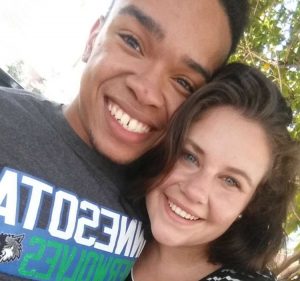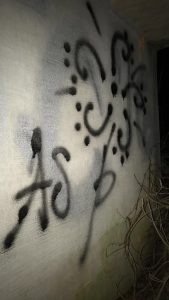America is the greatest country on earth. No ifs, ands, or buts about it. But the very thing the States are praised for contain the secrets we hide behind closed doors.

America: the land of possibilities. You are able to be anything or anybody you want to be. Which is what everyone wants, right? No labels, no expectations. We celebrate holidays that encourage dressing up and changing everything about yourself, from your hair, to your height, to becoming some fruit. But what if I told you that it wasn’t all it cracked up to be? What if I said we would all be better off if we were just ourselves? Because behind closed doors, the masks are only used as an escape route. Instead of expressing our individuality, we are only conforming to fit in. You see, behind closed doors, the only reason we idolize being able to be anything, is because we are told to just be ourselves isn’t good enough.

America: the Melting Pot. We were founded on immigration. People flocked from all over the world to be a part of this great nation. We “welcome” everyone with open arms. We all blend together in a perfect harmony that makes the best fondue you’ve ever tasted. Or is it? Because behind closed doors, racism is still alive. In America a white girl can date a black guy and people will cheer from the sidelines screaming “hip, hip, hooray for equality.” But behind closed doors, that white girl’s dad is saying she isn’t allowed to be with him while his mom is telling him you can’t trust a white girl.
America: Home of the American Dream. My dad was born in Ithaca, New York. He grew up on a lake with next to no money. His parents got divorced when he was 15 and his father invested every cent that had to a fool-proof business plan. It failed. My dad then went to college, became a successful business man, paid back his student loans, and now my sister and I and our kids will all be set for life. Admirable, right? Not so fast. Because behind closed doors, citizens have lost faith in being successful in America. Behind the door, they see a white man and assume he’s always had it easy. People worry about the disappearance of the Dream, but it is very much alive, but what they don’t want you to know, what’s going on behind closed doors, is it’s not the dream that is dead, but the people who should be dreaming it.

America: the Land of Rewards. We encourage all of our people, but especially our kids and praise them for a job well done. A pat on the back is no longer good enough, we must shower children with affection, approval, recognition, and gifts so they know just how good they are. But picking our kids up, is actually tearing the country down. Because behind closed doors, there is so little to celebrate in our corrupt, sub par school systems, we actually reward kids for just showing up. Behind closed doors, our kids have become more narcissistic from unnecessary praise and more likely to only look out for themselves and thus less and less leaders are being raised.

America: a Place Where No One is Alone. Every man has a best friend and every best friend has a man. We all rescue each other. None of God’s creations go unnoticed. But actually they do. My mom and I rescued Twix and she is one of the best things that ever happened to me. But it isn’t as humane as it sounds. Because behind closed doors, I needed to be rescued too. We can all see when a furry friend is in need our help, but as for our own kind? No one cares enough to see the depression and struggles our own people are facing. Instead, their scars go unnoticed and we simply hide them behind the closed doors.

America: the Land of Expression. Art can found anywhere and everywhere. People are constantly expressing theirselves and no one stops them. But ever think why graffiti is only done at night? Because behind closed doors, no one wants you to express your own opinion that differs from the masses. Behind closed doors, you don’t want anyone to know you have feelings and emotions that may not line up perfectly with everyone else’s. So we wait until the night and anonymously tag the spots that mean the most with pictures that say 1,000 words because in the daylight, it would just be too risky.
